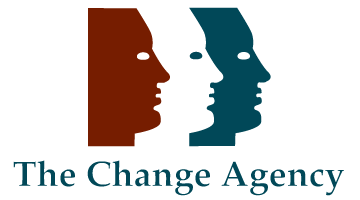In this white collar revolution, relationship skills may be your best bet in future proofing.
I believe in the short-medium term (5-8 years hence), those of us who are the best and brightest at communication skills will still be required as technology and networks take over some of the daily routine of our work.
The world of work is being drastically transformed. White collar workers, particularly professionals, are realising they need to change the way they think and communicate, or risk increasing irrelevance. In particular, professionals are realising that their procedural and technical competence will not be enough in a world that can increasingly access their knowledge base through technology, the internet, and social media.
The middle orders of society and commerce are being bypassed. According to Richard Susskind (2015) professionals are being asked to become more “the guide on the side”, as opposed to the old expert, “the sage on the stage”. We are told we are too expensive and only the select few could access us. Information as power was held by the professionals, but those hierarchies are being replaced by networks of knowledge sharing and increasingly competent machines.
This is cultural change. Public and private sector organisations ask Change Agents like me to develop in their people, the specialist skills in being able to consult, achieve synergies, problem-solve, and become trusted business “partners” with their clients. Clients are more knowledgeable and sophisticated, and need to be “influenced”, not told what to do.
In my view, it simply is not possible to achieve these high order connections between people, without the critical underpinning platform of speaking assertively and listening actively. In Part One of this series, I outline assertive speaking. This Part Two focuses on listening.
The bulk of the old jobs left for the current workforce are predicted to be in areas where technology helps, but doesn’t take over. There is no more powerful offering in a relationship than the ability to really listen. Many studies show being listened to rates more highly than praise, personal chat, and even a pay rise.

Assertive listening is about actively attending to the other person. Humans love to be heard and understood without judgement. If you can offer this service to somebody, they find you very attractive. You have built rapport between you.
Exceptional listening usually has three parts to it.
Firstly, take up an attitude of respectful paying attention. For a few moments of your time,really listen to the other person’s perspective, and as you understand parts of it, nod your head. Nodding sends a clear message of “I am following you”, and ‘I respect your right to your own opinion”. A still head indicates judgement, and it is much harder for people to talk to you if you seem to be assessing them. Good listening is about following the talker. For a few moments don’t speak back, simply try to follow the story. Maintain natural eye contact, without being too intense. Take up posture which is as similar as possible to the talker. In other words, join their world, be like them, and allow them to be the focus of your attention.
Stage two usually involves asking open questions. People love this type of questioning because it allows them to go wherever they need to on their issue. Open questions are ones such as “how so?…”, “why?…”, “go on…”, “what happened?…”, and my favourite, “tell me more…”. It encourages the person to get their story out, and to feel accepted by you. Obviously, if the talker has a lot to say, you may not need to use this stage at all.Avoid closed questions such as, “Don’t you think…” or “what about if…”
Closed questions limit the talker in some way, often to a yes or no answer. This is because they focus on things that you want to find out about or are interested in, or are assessing. Whilst they have a place in narrowing down to ultimate solutions, they get in the way of rapport and relationship. Keep them to a minimum, and use them later in the conversation.
Stage three is often called “the magic art of paraphrase”. It is magic because people love to be summed up in a non-judgemental way. It gives humans much pleasure to hear a synthesis of what they have just said. Paraphrases often start with the following, “so…”, “you are saying…”, “sounds like …”, or “I sense your…”, or “if I have heard you correctly, your point of view is …”. When you paraphrase someone, you sum up either the story you have heard from them, or the feelings that are implied, or both. Your paraphrase is usually shorter than what they said, because it is a summary. Notice the immediate improvement in the relationship energy between the two of you when you paraphrase. The talker becomes attracted to you, and then is much more open to listening to your own point of view.
Robots, artificial intelligence, and the internet cannot match this level of personal connection. Personally, I don’t think even increasingly intelligent machines can outperform a real human who cares enough to really listen.


